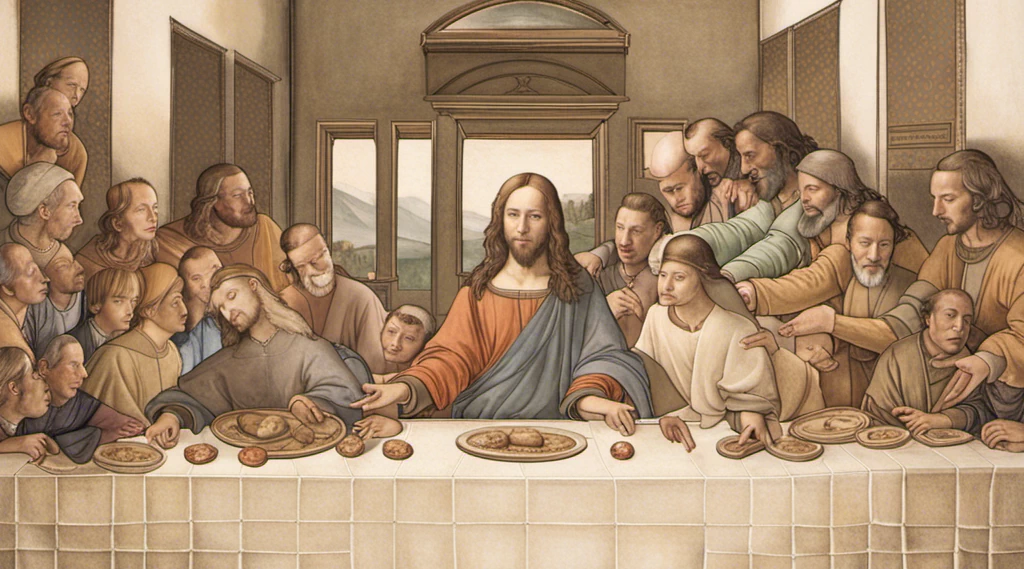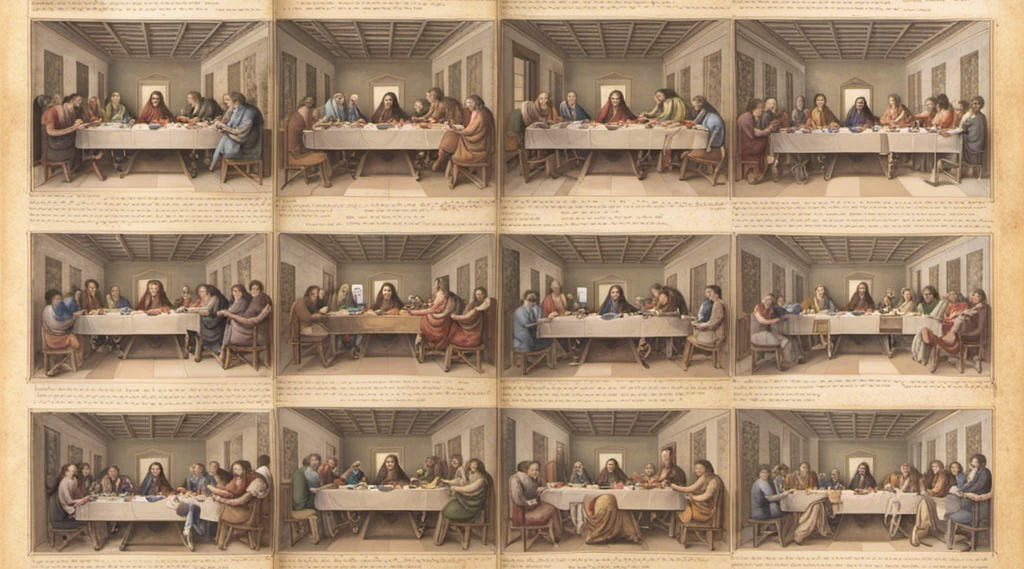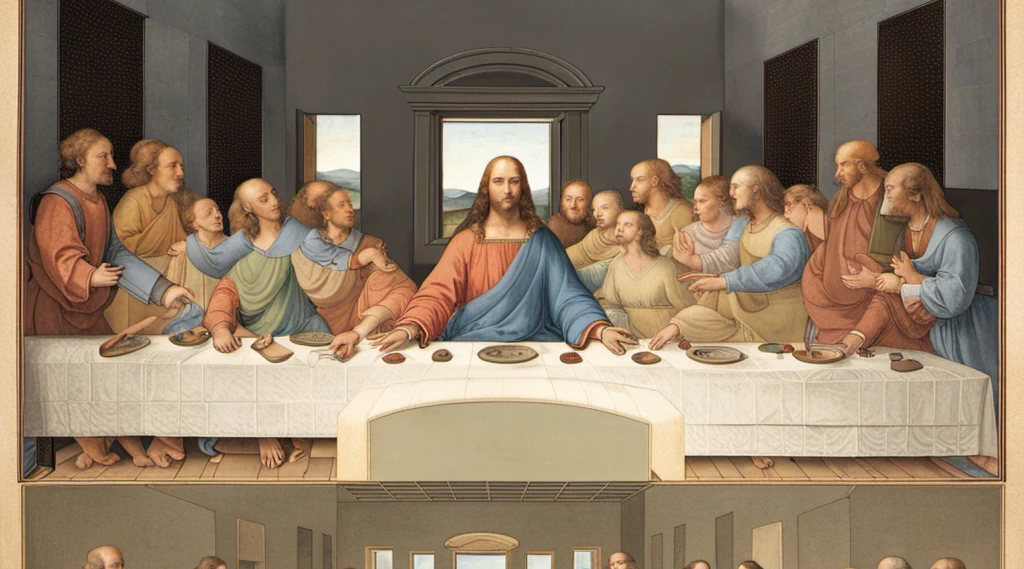Leonardo da Vinci: The Renaissance Genius
Leonardo da Vinci was a polymathic genius of the Renaissance, known for his mastery in various fields including art, science, and engineering.
Chapter 1 What’s the Leonardo da Vinci about
"Leonardo da Vinci" is a biography written by Walter Isaacson. It explores the life and accomplishments of the renowned Italian artist, inventor, and scientist Leonardo da Vinci. The book delves into da Vinci's multifaceted genius, examining his artistic masterpieces such as the Mona Lisa and The Last Supper, as well as his scientific observations and inventions.
Isaacson's work delves deep into da Vinci's notebooks, revealing his curiosity, creativity, and relentless pursuit of knowledge in various fields, including anatomy, engineering, botany, and architecture. In addition to exploring da Vinci's artistic and scientific pursuits, the book also provides insights into his personal life and relationships.
By examining da Vinci's extensive collection of notes and drawings, Isaacson uncovers the mind of a true Renaissance man, offering readers a comprehensive understanding of one of history's most influential figures.
Chapter 2 Why is Leonardo da Vinci Inspirational
Leonardo da Vinci is considered one of the most iconic figures in history and continues to be an inspiration to countless individuals across various fields. Here are a few reasons why he is regarded as inspirational:
- Multidisciplinary genius: Leonardo da Vinci was not only a brilliant artist but also excelled in various disciplines such as science, engineering, mathematics, anatomy, and architecture. His curiosity knew no bounds, and his ability to explore diverse areas of knowledge serves as a reminder that true mastery can transcend boundaries.
- Innovation and creativity: Leonardo's innovative thinking and creative approach continue to inspire generations. He had a unique ability to combine art and science, bringing forth groundbreaking ideas that were ahead of his time. His inventions, anatomical studies, and artistic techniques showcase his remarkable imagination, pushing the boundaries of what was thought possible.
- Perseverance and determination: Leonardo da Vinci faced numerous challenges throughout his life, including financial obstacles, societal pressures, and political constraints. Despite these difficulties, he remained dedicated to his work and never stopped learning. His unwavering perseverance serves as a reminder that pursuing one's passion requires dedication, resilience, and a willingness to overcome obstacles.
- Attention to detail and craftsmanship: Leonardo's meticulous attention to detail and commitment to excellence is evident in his artworks. His ability to capture emotions, gestures, and lifelike details with extraordinary precision demonstrates the importance of craftsmanship and the pursuit of perfection.
- Legacy and cultural impact: Leonardo da Vinci's legacy has left an indelible mark on art, science, and culture. His masterpieces like the Mona Lisa and The Last Supper continue to captivate audiences worldwide, while his scientific observations and inventions have influenced subsequent generations. His influence extends beyond his lifetime, serving as a testament to the power of one's contribution to society.
Overall, Leonardo da Vinci's relentless pursuit of knowledge, interdisciplinary approach, innovation, perseverance, attention to detail, and lasting legacy make him an inspirational figure who continues to motivate people to embrace their creativity, think outside the box, and strive for excellence in their respective fields.
Chapter 3 Leonardo da Vinci Overview
Explore the enigmatic world of Leonardo da Vinci, as we delve into his remarkable life and multifaceted achievements. From his unparalleled artistic masterpieces like the Mona Lisa and The Last Supper, to his groundbreaking scientific inventions and visionary ideas, this article uncovers the genius that defined an era. Join us on a captivating journey through da Vinci's extraordinary mind, unraveling the secrets behind his timeless legacy and the profound impact he left on the realms of art, science, and innovation.
Chapter 4 Author of the Book Leonardo da Vinci
The book "Leonardo da Vinci" was written by Walter Isaacson, an American writer and biographer. It was released on October 17, 2017.
Walter Isaacson is known for his compelling biographies of influential historical figures. Some of his other well-known books include:
- "Steve Jobs" (2011): A biography of the co-founder of Apple Inc., Steve Jobs. This book became a bestseller and received critical acclaim for its insights into Jobs' life and career.
- "Einstein: His Life and Universe" (2007): This biography delves into the life of the renowned physicist Albert Einstein. It explores not only his scientific achievements but also his personal struggles and contributions to society.
- "Benjamin Franklin: An American Life" (2003): In this biography, Isaacson examines the life and accomplishments of Benjamin Franklin, one of America's founding fathers. The book provides a comprehensive look at Franklin's multifaceted personality and his impact on various fields including science, politics, and literature.
Among these notable works, "Leonardo da Vinci" has garnered significant praise. It is widely regarded as one of Isaacson's best books in terms of editions. The book presents a detailed and comprehensive account of Leonardo da Vinci's life, artistic genius, scientific explorations, and overall contributions to humanity.
Chapter 5 Leonardo da Vinci Meaning & Theme
1. Meaning about Leonardo da Vinci
Leonardo da Vinci, born on April 15, 1452, in Vinci, Italy, was a renowned polymath of the Renaissance period. He is widely recognized as one of the greatest artists and thinkers in history.
The meaning behind Leonardo da Vinci lies in his exceptional talent, curiosity, and versatility across various disciplines. He excelled not only as a painter but also as an architect, engineer, scientist, inventor, anatomist, mathematician, musician, and writer. His diverse interests and insatiable desire for knowledge epitomize the concept of a "Renaissance man."
Da Vinci's artistic contributions include iconic works such as the Mona Lisa and The Last Supper, which display his mastery of techniques such as chiaroscuro and sfumato. His scientific studies ranged from anatomy, geology, and astronomy to engineering and physics, revealing a deep understanding of the natural world. Da Vinci's detailed anatomical drawings, for example, demonstrated his dedication to understanding the human body and its functions.
Inventive and ahead of his time, da Vinci conceptualized flying machines, tanks, and numerous other inventions that showcased his visionary thinking. Although many of these designs were not realized during his lifetime, they laid the foundation for future advancements in various fields.
Overall, the significance of Leonardo da Vinci lies in his boundless creativity, intellectual brilliance, and innovative spirit. His enduring legacy continues to influence art, science, and literature, inspiring generations of artists, scientists, and thinkers to push the boundaries of human knowledge and imagination.
2. Theme about Leonardo da Vinci
The theme of the book "Leonardo da Vinci" is the exploration and celebration of the life and work of one of history's most influential and enigmatic figures, Leonardo da Vinci. Through meticulous research and analysis, the book delves into various aspects of Leonardo's life, including his artistic genius, scientific curiosity, inventive imagination, and wide-ranging interests.
- Artistic Genius: The book examines Leonardo's prowess as a painter and sculptor, exploring his techniques, style, and groundbreaking contributions to the art world. It delves into his masterpieces like the Mona Lisa and The Last Supper, highlighting his ability to capture human emotion, perspective, and natural beauty.
- Scientific Curiosity: Leonardo's insatiable curiosity about the natural world is another significant theme. The book explores his scientific investigations, ranging from anatomy and physiology to geology and astronomy. It discusses his sketches, notebooks, and observations, showcasing his commitment to understanding the mechanics and laws that govern nature.
- Inventive Imagination: Leonardo's inventive mind and his numerous conceptual designs become prominent themes in the book. It explores his fascination with engineering, architecture, and military technology, illuminating his imaginative ideas for flying machines, bridges, and war machines. These concepts demonstrate his innovative thinking and his desire to push the boundaries of possibility.
- Wide-Ranging Interests: The book presents Leonardo as a polymath with diverse interests, highlighting his exploration of music, literature, philosophy, and more. It reveals how these varied pursuits influenced his art and scientific endeavors, demonstrating his multifaceted personality and intellectual depth.
- Unresolved Enigma:Lastly, the book acknowledges the mysterious and enigmatic aspects of Leonardo's life. Despite extensive research, many questions about his personal life, motivations, and inner thoughts remain unanswered. The book navigates this ambiguity, presenting Leonardo as a complex figure whose true essence eludes comprehensive understanding.
Overall, the book delves into the multifaceted nature of Leonardo da Vinci, exploring his artistic brilliance, scientific curiosity, inventive imagination, wide-ranging interests, and the enduring enigma surrounding his life.
Chapter 6 Researching Online Materials Related to Leonardo da Vinci
If you're an avid reader in search of fresh book recommendations, we have some exciting options for you to explore. If you enjoy exploring different formats and concise summaries of Leonardo da Vinci, look no further than platforms like Bookey. Bookey offers a wide selection of books in various formats, accompanied by brief summaries that provide a quick overview of their content. Whether you prefer reading on the go or need a quick summary before delving deeper, Bookey has you covered. However, if you prefer video-based content, YouTube is the place to be. With its vast collection of videos, including captivating ones like "The Genius: Leonardo da Vinci Explained in 11 Minutes," there is something for everyone. While we apologize for not being able to provide a PDF version of "Leonardo da Vinci" here, our primary objective is to guide you towards accessible resources that can enhance your understanding of the book's principles and strategies. By leveraging these valuable resources, you'll be equipped to apply the insights from "Leonardo da Vinci" to your entrepreneurial journey and achieve remarkable growth. So dive into these platforms today and let the wealth of knowledge enrich your reading and learning experiences!
Chapter 7 Quotes about Leonardo da Vinci
- "Simplicity is the ultimate sophistication."
- "It had long since come to my attention that people of accomplishment rarely sat back and let things happen to them. They went out and happened to things."
- "Learning never exhausts the mind."
- "Art is never finished, only abandoned."
- "The noblest pleasure is the joy of understanding."
- "Water is the driving force of all nature."
- "I love those who can smile in trouble."
- "Every now and then go away, have a little relaxation, for when you come back to your work your judgment will be surer."
- "Where there is shouting, there is no true knowledge."
- "Nature never breaks her own laws."
- "Study without desire spoils the memory, and it retains nothing that it takes in."
- "I have been impressed with the urgency of doing. Knowing is not enough; we must apply. Being willing is not enough; we must do."
- "He who loves practice without theory is like the sailor who boards a ship without a rudder and compass."
- "Art is the queen of all sciences communicating knowledge to all generations of the world."
- "Realize that everything connects to everything else."
- "Wisdom is the daughter of experience."
- "Iron rusts from disuse; water loses its purity from stagnation... even so does inaction sap the vigor of the mind."
- "Learning is the only thing the mind never exhausts, never fears, and never regrets."
- "Time stays long enough for anyone who will use it."
- "As a well-spent day brings happy sleep, so a life well spent brings happy death."
Chapter 8 Similar with Leonardo da Vinci
If you're looking for books similar to Leonardo da Vinci, there are several options that explore the lives and achievements of other remarkable individuals from history. Here are a few recommendations:
- "Steve Jobs" by Walter Isaacson: Just as Leonardo da Vinci was revered for his artistic and technological innovations, Steve Jobs left an indelible mark on the world of technology and design. This biography provides an in-depth look at the life and visionary thinking behind the co-founder of Apple Inc.
- "The Wright Brothers" by David McCullough: For a story about pioneering inventors and innovators, this book explores the lives of Orville and Wilbur Wright. Their determination and engineering brilliance allowed them to achieve the first powered flight, changing the world of transportation forever.
- "Einstein: His Life and Universe" by Walter Isaacson: This biography delves into the life of Albert Einstein, one of the greatest scientific minds of the 20th century. Like Leonardo da Vinci, Einstein's genius spanned multiple disciplines and his contributions revolutionized our understanding of the universe.
- "The Immortal Life of Henrietta Lacks" by Rebecca Skloot: While not directly related to Leonardo da Vinci's field of expertise, this book tells the captivating true story of Henrietta Lacks, whose cells were unknowingly taken without consent and became crucial in medical research. It explores ethical questions and the impact of scientific advancements on society.
- "Sapiens: A Brief History of Humankind" by Yuval Noah Harari: To gain broader insights into the development of human civilization, this book offers a thought-provoking journey through our history. From the earliest humans to the modern age, it encompasses various aspects of knowledge, including art, science, philosophy, and more.
Remember, each of these books focuses on different individuals and topics, but they share common elements with Leonardo da Vinci's multidisciplinary genius, curiosity, and impact on society.





